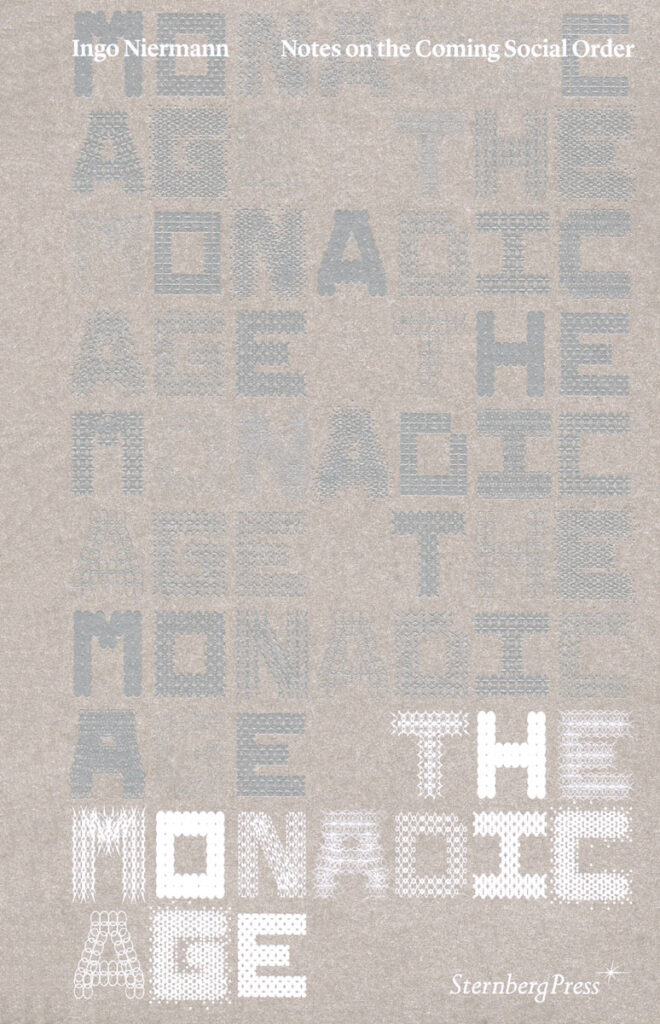Ingo Niermann: The Monadic Age
Notes on the Coming Social Order
The world is marked by deepening conflicts—between democracies and autocracies, woke and populist identity politics, rich and poor, continued environmental exploitation and harsh complications like climate change. In ‘The Monadic Age’, Ingo Niermann argues that, stirred by rapid developments in automation and AI, these manifold crises are about to culminate in a new paradigm of self-sufficiency—monadism—that overturns the liberal era and forces a reinvention of all social parameters.
Today, two major post-liberal dispositions are unfolding. On the one side, people envision a harmonious community of all human and nonhuman beings (multi-species kinship, a rainbow of identities). On the other side, people isolate themselves within their own identities and belongings (filter bubbles, safe spaces, gated communities, charter cities, prepping). Monadism recognizes that these two seemingly contradictory dispositions stem from a similar understanding of the world: one is more optimistic, the other more pessimistic, but ultimately they’re interdependent. Before seeking harmony, we humans, a highly dominant species, must first of all restrain ourselves from coercive interactions with our environment. And to protect ourselves sufficiently from our environment, we must minimize its abuse.
‘The Monadic Age’ unfolds in thirty-three autonomous—monadic—essays on topics as diverse as environmentalism, terrorism, geopolitics, housing, the metaverse, nonbinarism, language, charity, euthanasia, identity politics, tattoos, ableism, AI, birthrates, war, religion, sex, and art.

